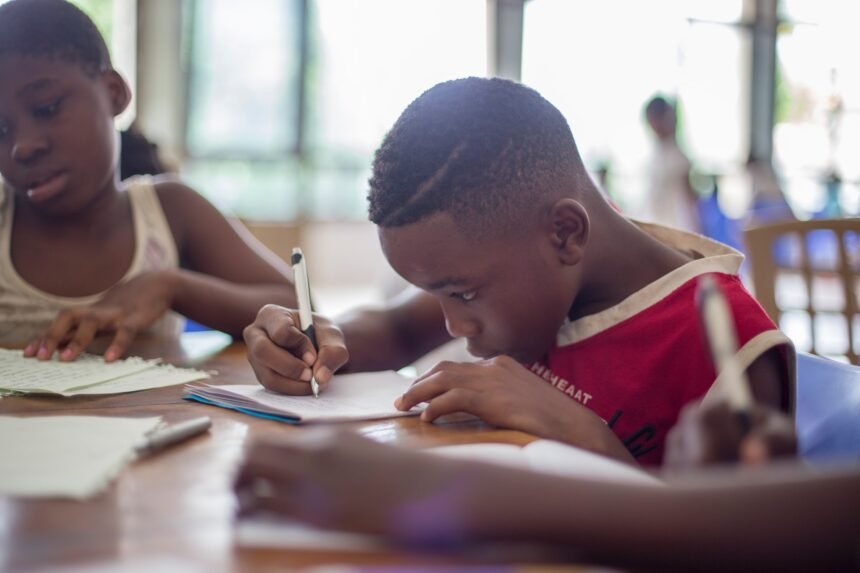Education is a cornerstone of society, and the way we approach teaching our youngest learners plays a crucial role in shaping their futures. As we navigate the complexities of modern education, it’s important to explore innovative strategies that can enhance learning experiences for primary school children. Here, we’ll discuss a better way to educate young minds, focusing on engaging methodologies that foster creativity, critical thinking, and a love for learning.
1. Embrace Play-Based Learning
Children learn best when they’re having fun. Play-based learning integrates play into the educational process, encouraging exploration and discovery. This approach helps children develop social skills, problem-solving abilities, and creativity. Activities like role-playing, building with blocks, or even outdoor games can teach fundamental concepts in mathematics, science, and literacy without the rigidity of traditional teaching methods.
Benefits:
- Enhances engagement and motivation.
- Encourages collaborative learning.
- Supports emotional and social development.
2. Incorporate Technology Thoughtfully
In today’s digital age, technology can be a powerful tool in education. Interactive apps, educational games, and virtual field trips can engage children in new and exciting ways. Integrating technology should not overshadow traditional learning but rather complement it. For instance, coding games can introduce basic programming concepts, while digital storytelling can enhance language skills.
Benefits:
- Personalized learning experiences.
- Immediate feedback and progress tracking.
- Accessibility to a wealth of information and resources.
3. Focus on Experiential Learning
Experiential learning is an approach where children learn through experiences—hands-on activities that allow them to apply concepts in real-world situations. This can include field trips to museums, gardening, or science experiments. Such experiences deepen understanding and retention, making learning tangible and relevant.
Benefits:
- Bridges the gap between theory and practice.
- Enhances retention of knowledge.
- Builds critical thinking and problem-solving skills.
4. Foster Social and Emotional Learning (SEL)
Integrating social and emotional learning into the curriculum helps children develop skills to manage their emotions, set goals, show empathy, and establish positive relationships. Programs that promote SEL not only improve academic outcomes but also equip children with essential life skills.
Benefits:
- Improves classroom behavior and reduces bullying.
- Enhances academic performance.
- Cultivates a positive and inclusive classroom environment.
5. Encourage Inquiry-Based Learning
Inquiry-based learning stimulates curiosity by encouraging students to ask questions and seek answers through investigation. Instead of simply providing information, teachers guide children in exploring topics that interest them, promoting deeper understanding and engagement.
Benefits:
- Develops critical thinking and research skills.
- Promotes independence and self-directed learning.
- Fosters a lifelong love for inquiry and knowledge.
6. Prioritize Individual Learning Styles
Every child learns differently. Acknowledging and accommodating diverse learning styles is crucial for effective education. Teachers can use varied instructional strategies, such as visual aids, auditory exercises, and kinesthetic activities, to reach every student in the classroom.
Benefits:
- Ensures all students can access the curriculum.
- Supports personalized learning pathways.
- Boosts confidence and self-esteem among students.
7. Involve Parents and the Community
Education is a shared responsibility. Building strong partnerships with parents and the community can enhance the learning experience. Schools can organize workshops, volunteer opportunities, and family involvement programs that encourage active participation in a child’s education.
Benefits:
- Creates a support network for students.
- Provides additional resources and enrichment.
- Strengthens the connection between home and school.
Conclusion
A better way to educate primary school children combines innovation, engagement, and a holistic approach to learning. By embracing play-based learning, leveraging technology, prioritizing social and emotional skills, and fostering an environment of inquiry and community involvement, we can create a rich educational landscape. Together, we can inspire young minds to explore, discover, and thrive in their educational journeys, laying a strong foundation for their futures.


Leave a Reply